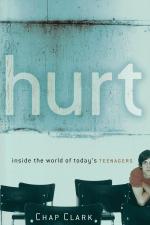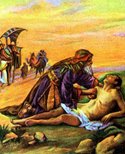
I find I’m so excited I can barely sit still to hold a thought in my head. I think it’s the excitement only a free man can feel. A free man at the start of a long journey, whose conclusion is uncertain.
- "Shawshank Redemption"
According to the movie “Shawshank Redemption,” men in prison grow adapted to prison life and lose their desire to live “on the outside.” The emotion expressed by Morgan Freeman’s character in the above quotation is one of renewed freedom, but more importantly renewed hope.
For some reason, I have always been hopeful regarding the future. I tend to enjoy change rather than fear it. I would like to think there are deeply spiritual reasons for this, but in part it’s my personality and upbringing. Nevertheless, hopeful expectation concerning what's to come is the proper response to the promises of God.
A Christian, whether 20 years old or 100 years old (and I’ve met both) can experience this. Certainly, life takes its toll. Things do not go as planned or as desired, and responsibilities weigh us down. Our spiritual vigor comes and goes like the ocean tide, and with it our comprehension of God’s promises. Nevertheless, if we believe a gracious and inexhaustible God is with us, the embers of hope should be kept alive – and sometimes fanned into flames.
For the righteous will never be moved; he will be remembered forever.
He is not afraid of bad news; his heart is firm, trusting in the LORD. Psalm 112:6-7
As it is written: "No eye has seen, no ear has heard, no mind has conceived what God has prepared for those who love him"— but God has revealed it to us by his Spirit. 1 Corinthians 2:9-10









